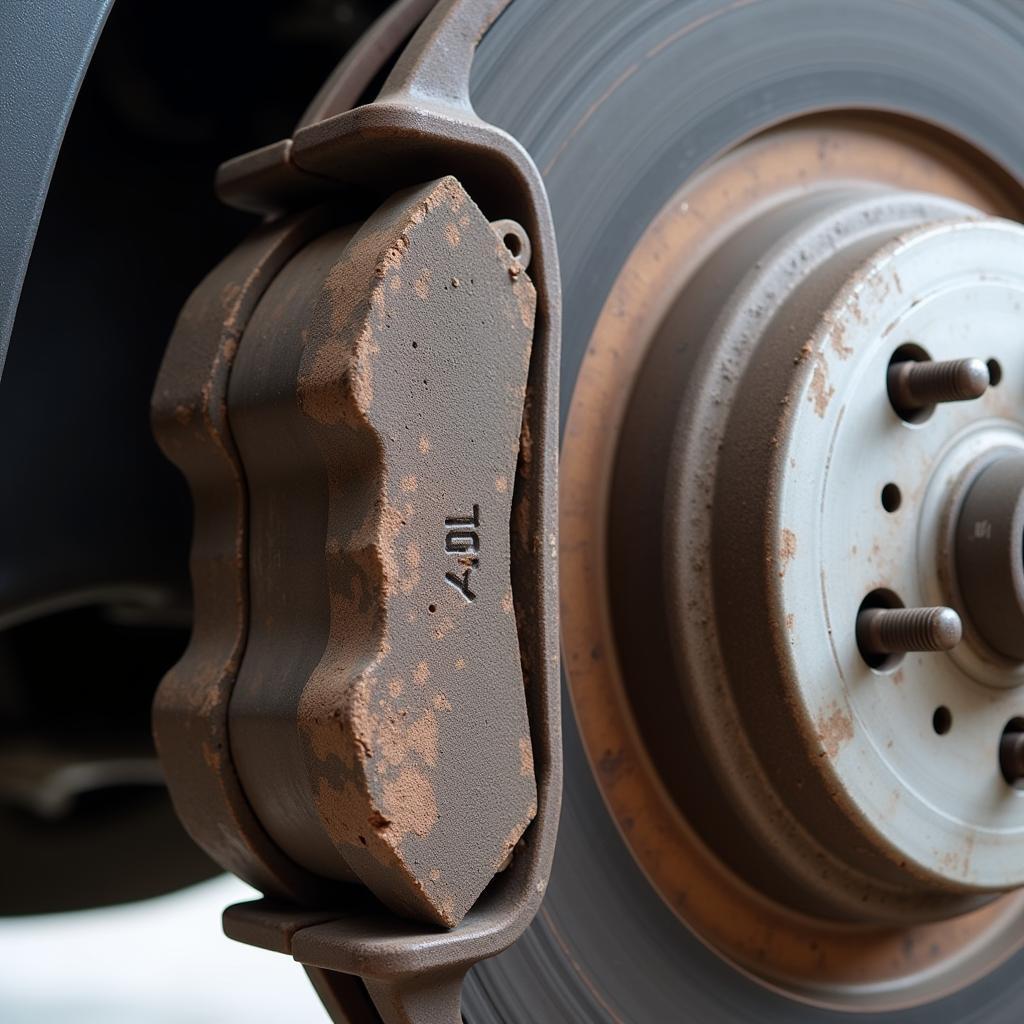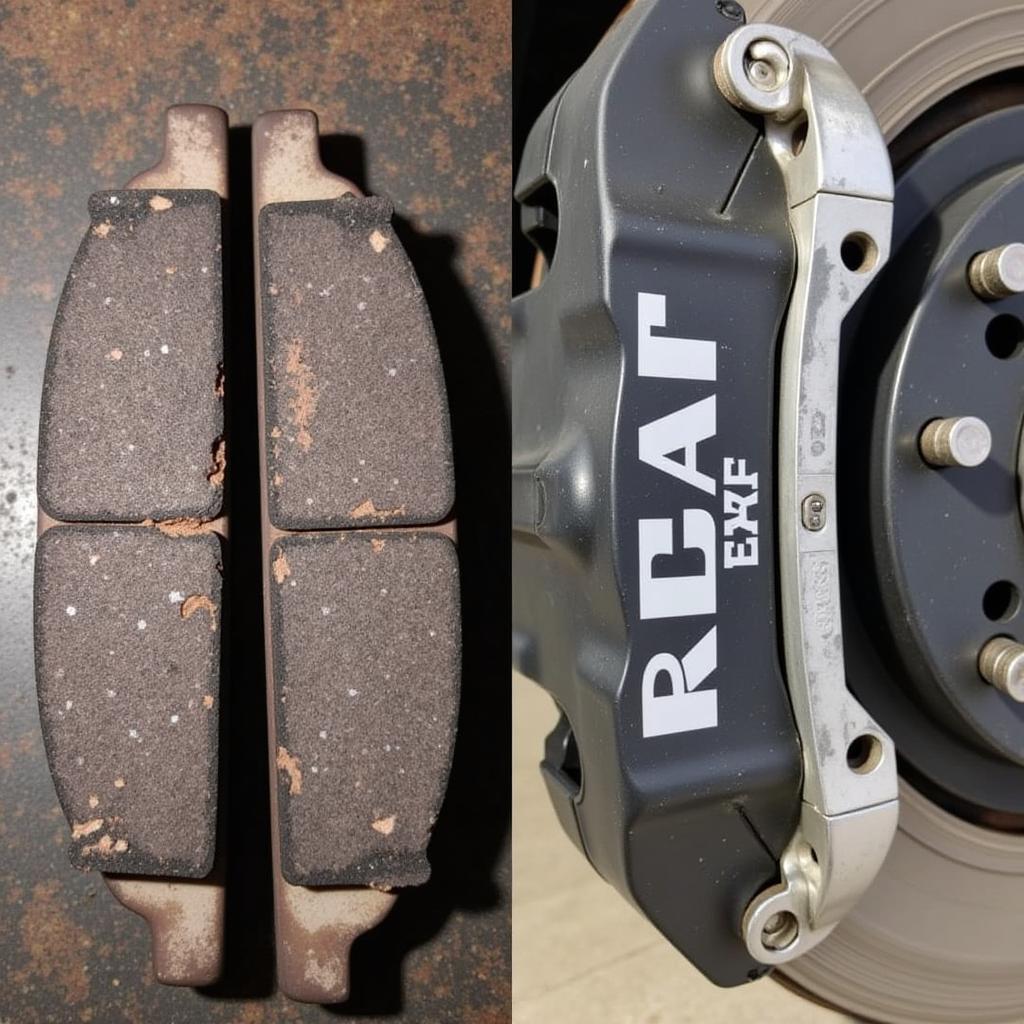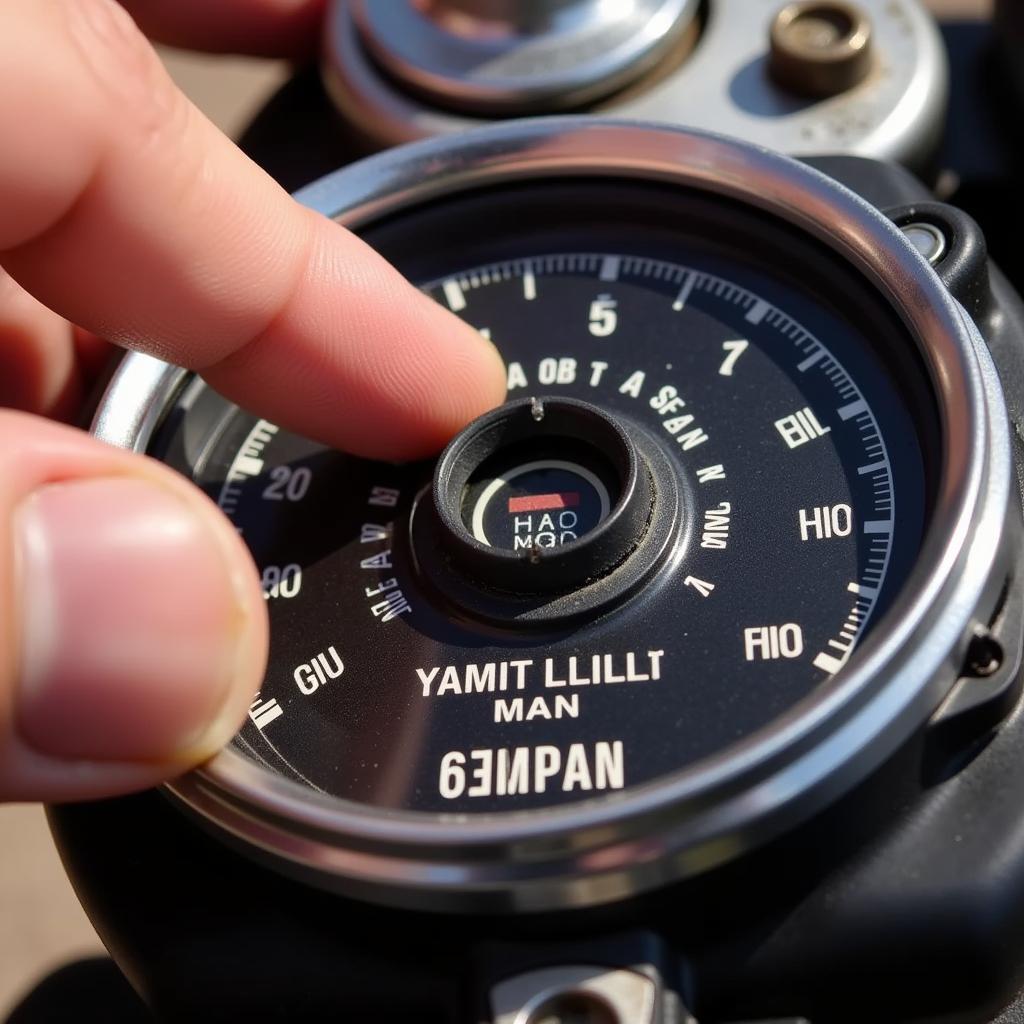The dreaded brake warning light on your 2001 Jeep Grand Cherokee can be a real headache. Understanding why it’s illuminated and how to address the issue is crucial for your safety and the longevity of your vehicle. This comprehensive guide dives into the common causes of a 2001 jeep grand cherokee brake warning light, from simple fixes to more complex issues requiring professional diagnostics. We’ll cover everything you need to know, from checking your brake fluid to understanding the potential role of the ABS system.
Understanding Your Jeep’s Brake Warning Light
The brake warning light serves as your vehicle’s first line of communication regarding potential braking system problems. It’s designed to alert you to several possibilities, including low brake fluid, a malfunctioning parking brake, or issues within the anti-lock braking system (ABS). Ignoring this light could lead to serious safety hazards.
Common Causes of a Brake Warning Light
Several factors can trigger the brake warning light in your 2001 Jeep Grand Cherokee. These range from simple issues like low brake fluid to more complex problems requiring professional attention. Let’s break down the most common culprits:
- Low Brake Fluid: This is the most frequent cause. Brake fluid levels naturally decrease over time due to wear and tear. A leak in the brake lines can also cause a rapid drop in fluid level.
- Worn Brake Pads: As brake pads wear down, they can trigger a sensor that illuminates the warning light. This is a normal part of brake pad lifespan and indicates it’s time for a replacement.
- Faulty Brake Light Switch: A malfunctioning brake light switch can also activate the warning light. This switch is responsible for activating your brake lights when you press the brake pedal.
- ABS Issues: Problems within the anti-lock braking system, such as a faulty sensor or module, can trigger the warning light.
- Parking Brake Engaged: Sometimes, the simplest explanation is the correct one. Ensure the parking brake is fully disengaged.
Troubleshooting the Brake Warning Light
Before rushing to a mechanic, there are a few steps you can take to troubleshoot the brake warning light yourself.
- Check the Parking Brake: Make sure the parking brake is completely released. This often overlooked step can save you a trip to the shop.
- Inspect Brake Fluid Level: Locate the brake fluid reservoir under the hood and check the fluid level. If it’s below the minimum line, add brake fluid of the correct type as specified in your owner’s manual.
- Check Brake Lights: Have someone press the brake pedal while you check if the brake lights are functioning correctly. If they aren’t, the brake light switch might be faulty.
- Inspect Brake Pads: Visually inspect your brake pads for wear. If they appear thin or worn, they likely need replacing.
 Worn Brake Pads on a 2001 Jeep Grand Cherokee
Worn Brake Pads on a 2001 Jeep Grand Cherokee
When to Seek Professional Help
If the basic troubleshooting steps don’t resolve the issue, it’s crucial to consult a qualified mechanic specializing in Jeep diagnostics. They can perform a more thorough inspection, including scanning for diagnostic trouble codes (DTCs) related to the ABS system.
“A professional scan tool can pinpoint the exact cause of the brake warning light, especially for ABS-related issues,” says John Miller, a certified automotive technician with over 20 years of experience. “Don’t delay getting your brakes checked – it’s a critical safety system.”
Remote Diagnostics and Software Solutions
Modern technology allows for remote diagnostics and software updates in some cases. This can be a convenient option for addressing certain software-related brake system issues. However, this typically requires specialized equipment and software accessible to qualified technicians.
“Remote diagnostics can sometimes identify software glitches that trigger the brake warning light,” adds Maria Sanchez, an automotive software engineer. “However, physical inspections are often still necessary to rule out mechanical problems.”
Conclusion
The brake warning light in your 2001 Jeep Grand Cherokee should never be ignored. By understanding the common causes and following the troubleshooting steps outlined in this guide, you can take the first steps towards resolving the issue. However, always prioritize safety and consult a qualified mechanic for any complex brake system problems, especially those potentially related to your ABS system. Addressing the 2001 jeep grand cherokee brake warning light promptly will ensure your safety and the optimal performance of your vehicle.
FAQ
- Can I drive my Jeep if the brake warning light is on? It’s not recommended. The warning light indicates a potential problem with your braking system. Have it inspected immediately.
- How often should I check my brake fluid level? Check your brake fluid level at least once a month.
- How much does it cost to replace brake pads? The cost varies depending on the type of brake pads and labor rates in your area.
- What is the ABS system, and why is it important? The ABS system prevents wheel lockup during hard braking, allowing you to maintain steering control.
- Can a low battery cause the brake warning light to come on? While unlikely, a severely low battery can sometimes cause erratic behavior in the vehicle’s electrical system, potentially triggering warning lights.
- What is the difference between the brake warning light and the ABS light? The brake warning light typically indicates a problem with the general braking system, while the ABS light specifically points to an issue within the anti-lock braking system.
- Can I top off my brake fluid with any type of fluid? No, use only the brake fluid type specified in your owner’s manual. Using the wrong type can damage your brake system.


